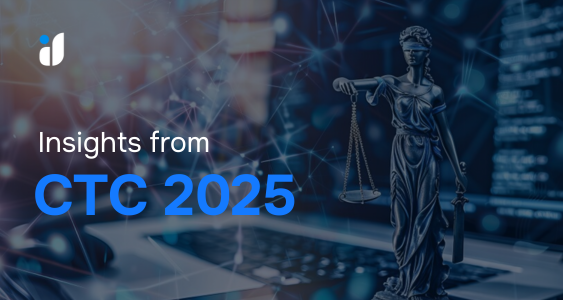At this year’s Court Technology Conference (CTC 2025), hosted by the National Center for State Courts (NCSC), the message was loud and clear: the future of court operations is digital, and artificial intelligence is moving fast. While much of the conversation centered on modernization and automation, we emerged with a different, yet equally urgent, takeaway: if the courts are accelerating toward innovation, it’s time for the background screening industry to join them.
Delays That Ripple Through the Economy
Our conversations with court clerks in Hawaii, Arizona, and Mississippi underscored a persistent issue: background check turnaround times in certain states and counties are stretching to 3–4 weeks. These delays have a measurable impact. They leave qualified job applicants waiting, and often unable to work, while clearance is pending. In industries where time-to-hire is critical, these lags not only affect individuals but also disrupt hiring pipelines, stall onboarding, and strain local economies. More than an operational hurdle – it’s a real-world problem for real people who are trying to support their families and secure financial stability.
Forging the Right Partnerships
We spent meaningful time at the conference exploring new ways to improve data access and reduce turnaround times, particularly through potential integrations with state courts. Some conversations highlighted the structural challenges of working directly with court systems, where technology adoption varies and decision-making authority is often decentralized.
That said, we also had promising discussions that could lead to future integrations in several key states. These opportunities represent real potential and a willingness to improve speed, transparency, and efficiency for both clients and applicants navigating the hiring process.
AI in the Courthouse
Artificial intelligence took center stage at CTC. From document digitization to court reporting, vendors are leveraging AI and OCR to streamline workflows and enhance data accessibility. The takeaway? When courts organize and structure their data, AI can create measurable efficiency. This is where InformData’s vision aligns—we believe real progress comes from combining verified data with responsible innovation, not just automation for automation’s sake.
Where We Go From Here
CTC 2025 made it clear that courts are rethinking how they operate. Now is the time for us, as a leader in the background screening industry, to help them rethink how they share and deliver data.
One of the most impactful moments for the InformData team came from a conversation with a representative from the National Center for State Courts (NCSC). After we shared what we’re seeing in the field, particularly around data access delays and their real-world effects, we were encouraged to formally submit our feedback through the NCSC’s “Engage with Us” portal. That means our voice, and the voices of those we serve, will be shared directly with court clerks, opening the door to meaningful dialogue and long-term system improvements.
Whether it’s through direct integration, AI innovation, or lending our voice to promote industry evolution, we’re committed to putting people first and driving change. If your business is facing similar challenges or others, we’d love to hear your story. Together, we can continue to push for solutions that work better for everyone.

